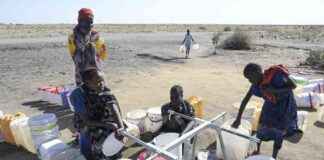**Transforming Energy Access in Africa: The Impact of Global South Financing**
**The Energy Crisis in Africa**
As of January 10, 2025, Africa continues to grapple with a pressing energy crisis, leaving over 40% of its population without access to electricity. This dire situation has spurred emerging markets to take action and revolutionize the continent’s energy landscape through innovative financing solutions.
**Global South Financing Initiatives**
The African continent boasts immense renewable energy potential, yet only a fraction of it is currently utilized. While hydropower accounts for about 20% of the energy capacity in Africa, there remains significant untapped potential. Solar, wind, and geothermal energy sources present promising opportunities for growth and development.
**The Role of Sustainable Energy Fund for Africa (SEFA)**
One pivotal initiative driving this transformation is the Sustainable Energy Fund for Africa (SEFA), established in 2011. SEFA plays a crucial role in providing funding to stimulate private sector investments in renewable energy projects across the continent. Through offering technical expertise and concessional financing, SEFA aims to eliminate investment barriers and enhance the financial viability of projects. The fund specifically focuses on promoting green mini-grids and enhancing energy efficiency throughout Africa.
**Social and Economic Implications**
Enhanced energy access goes beyond merely providing electricity; it can catalyze economic growth by supporting industrialization and job creation. Initiatives focusing on clean cooking solutions can mitigate health risks associated with traditional cooking methods, particularly impacting women and children. Moreover, reliable and affordable energy can empower communities, fostering small business development and enhancing educational opportunities. By connecting more households to electricity, the potential for economic advancement becomes tangible.
In a personal anecdote, imagine a young girl named Amina in a remote village in Africa. Amina dreams of becoming a doctor but lacks access to electricity at home, making it challenging to study after dark. With improved energy access, Amina’s aspirations could become a reality, highlighting the transformative impact of sustainable energy solutions on individual lives.
**Ongoing Challenges and the Path Forward**
Despite notable progress, significant challenges persist. Many African nations struggle to secure adequate funding due to economic instability and inadequate infrastructure. To achieve universal energy access by 2030, an estimated USD 25 billion will be required annually, necessitating innovative financing mechanisms.
To bridge existing funding gaps, leveraging concessional capital to attract private investments is imperative. Strengthening local financial systems can enhance resilience to external shocks and mitigate currency risks. Governments can incentivize local investments by establishing public green finance programs and supporting training initiatives. Crucially, collaboration between governments, private investors, and international financial bodies is essential to drive sustainable growth and development.
In conclusion, Global South financing is playing a pivotal role in reshaping Africa’s energy sector, offering a pathway towards sustainable growth and development. By increasing investments in renewable energy and fostering robust partnerships, the continent can illuminate its cities, uplift communities, and propel progress towards a brighter future.














